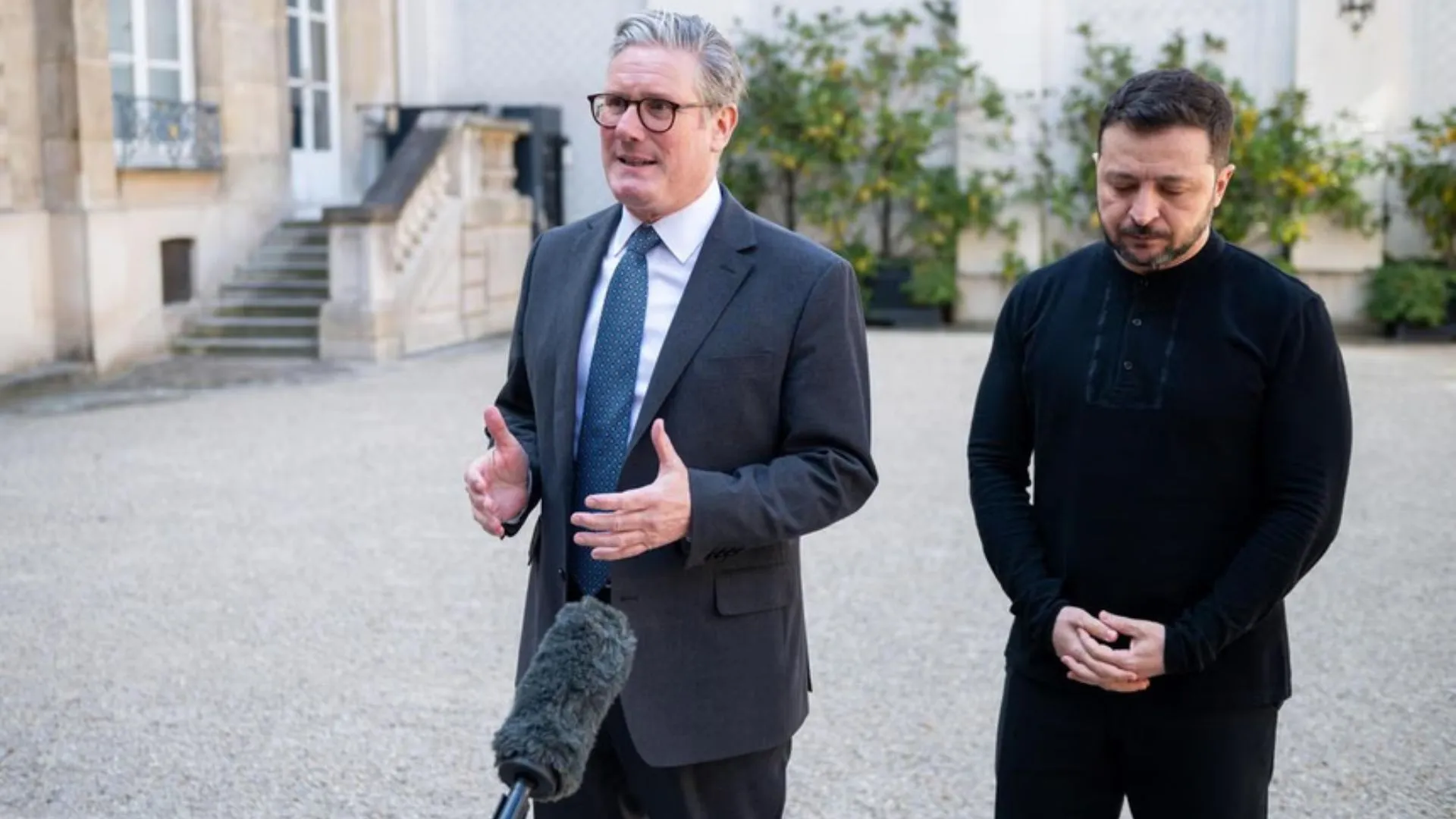European leaders convened in Paris on Thursday, reaffirming their commitment to maintaining and even strengthening sanctions on Russia over its ongoing war against Ukraine. Rather than easing restrictions, the summit emphasized the need for greater pressure on Moscow.
Additionally, Britain and France began outlining a potential “reassurance” force to be deployed after any peace agreement is reached.
Hosted by French President Emmanuel Macron, the meeting gathered Ukraine’s European allies and President Volodymyr Zelensky in a strategic discussion on the conflict’s future. This effort for a unified stance follows former U.S. President Donald Trump’s unexpected move to engage directly with the Kremlin.
While Washington claims there has been some progress toward a ceasefire, a lasting peace agreement remains elusive. The gathering of over two dozen European leaders also revealed divergences in strategy, particularly regarding postwar troop deployment.
“He really wants to divide Europe and America, Putin really wants that,” Zelensky said after the summit, urging the U.S. to take a stronger position against Moscow.
He warned, “Everybody understood and understands that today Russia does not want any kind of peace.”
Strengthening Sanctions Against Russia
A key takeaway from the summit was the consensus that sanctions against Russia should remain in place and even be expanded until a peace agreement is reached.
“There was complete clarity that now is not the time for the lifting of sanctions, quite the contrary — what we discussed is how we can increase sanctions to support the US initiative to bring Russia to the table,” said British Prime Minister Keir Starmer.
German Chancellor Olaf Scholz echoed this sentiment, stating that lifting sanctions without a truce would be a “grave mistake” and “makes no sense.”
Zelensky also expressed concerns about what he called “very dangerous signals” suggesting otherwise, specifically referencing Saudi Arabia.
The Proposed ‘Reassurance Force’
As part of ongoing discussions about Ukraine’s long-term security, France and Britain proposed sending a “reassurance force” after any peace deal to deter further Russian aggression.
Macron acknowledged that not all European nations were on board with the plan, but insisted that unanimity was not required for its implementation. A Franco-British delegation is set to visit Ukraine soon to discuss the details.
“It does not have unanimity today, but we do not need unanimity to do this,” Macron stated.
He clarified that the force would not serve as peacekeepers or substitute for the Ukrainian military, but rather as a deterrent against future Russian aggression.
While some European nations support the initiative, others remain skeptical. Italian Prime Minister Giorgia Meloni reiterated her opposition to sending troops, stressing that she hopes the United States will be involved in the next European discussions on Ukraine.
Unanswered Questions and Growing Tensions
Despite the diplomatic efforts, Zelensky remained cautious about the proposed military support.
“There are many questions, but so far, there are few answers” regarding the force’s leadership and scope, he said.
Meanwhile, tensions between Russia and Ukraine continue to escalate. Ukraine has offered a 30-day ceasefire through the United States, but Russia has yet to respond.
Adding to the strain, Ukraine accused Russia on Thursday of violating a U.S.-brokered agreement by striking energy infrastructure in Kherson, causing widespread power outages.
“I think there should be a reaction from the US,” Zelensky remarked, questioning who is monitoring compliance with the agreement to avoid targeting energy sites.
The Paris summit followed reports from the White House indicating that Russia and Ukraine might be moving toward a ceasefire in the Black Sea, facilitated through parallel negotiations with U.S. officials in Saudi Arabia.
However, for now, peace remains uncertain as European allies push for a coordinated approach while navigating their own differences in strategy.
ALSO READ: Poland’s PM Stands Firm On Trump’s Auto Tariff: ‘Common Sense, Not On Our Knees’























